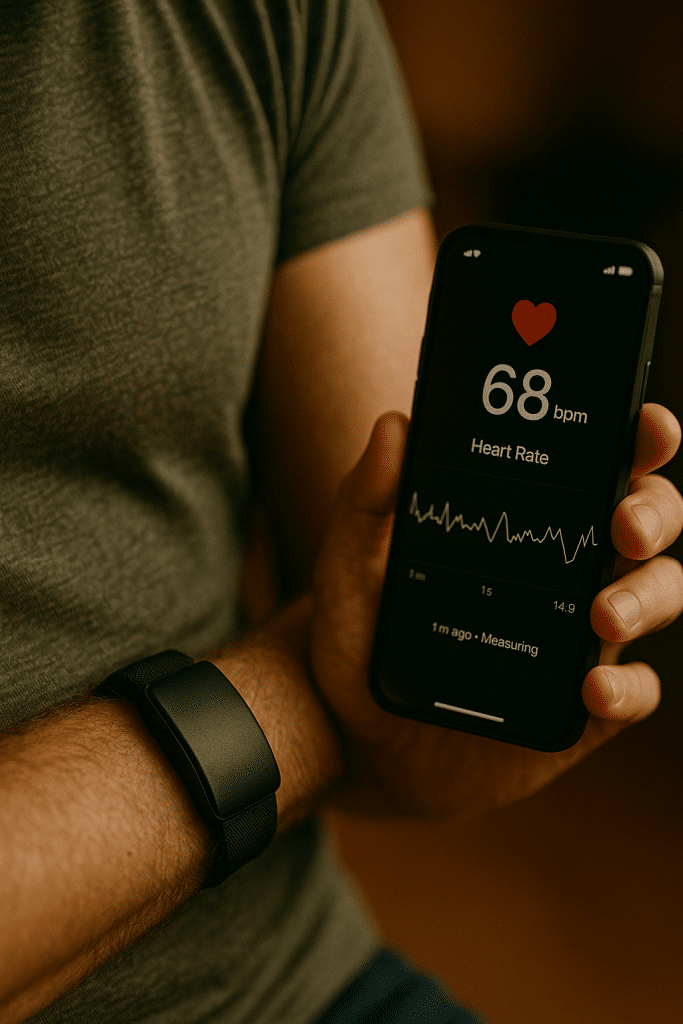Deep Breathing Exercises to Lower Heart Rate - Christian Guide to Peace
Estimated reading time: 5 minutes
“Inhale peace, exhale praise.” Few practices embody that rhythm better than deep breathing exercises to lower heart rate. God built a vagus‑nerve “pause button” into your chest so that, when life overwhelms you, you can literally breathe His peace back in. This guide shows you how—step‑by‑step, Bible‑in‑hand, and science‑approved.
Why Your Heart Races — and What Scripture Says
Stress, deadlines, or even doom‑scrolling can kick the God‑given fight‑or‑flight system into overdrive. Adrenaline surges, breathing turns shallow, and pulse skyrockets. King David felt that same tremor: “My heart is in anguish within me… fear and trembling have beset me” (Psalm 55:4‑5, NIV). Rapid heartbeat is not a spiritual failure; it is physiology. The Lord’s answer? “Cast all your anxiety on him because he cares for you” (1 Peter 5:7, NIV).
Medical researchers explain that slow diaphragmatic deep breathing exercises to lower heart rate tells the vagus nerve to flip your body from “fight‑or‑flight” to “rest‑and‑digest,” lowering heart rate and blood pressure. Harvard cardiologists report drops of up to 10 mm Hg systolic pressure when patients practise controlled breathing daily. Meanwhile, a 2024 meta‑analysis of 15 trials found an average resting‑heart‑rate reduction of 2.4 bpm—small but cardioprotective over time.

The Science Behind Deep Breathing
Every deep inhale draws oxygen into the lower lungs, stretching baro‑receptors that signal safety to the brain. On a prolonged exhale the diaphragm rises, transiently boosting blood pressure; your nervous system counters by slowing the heart. Repeated cycles increase Heart‑Rate‑Variability (HRV), a gold‑standard marker of resilience. Better HRV means stronger stress tolerance — the physical counterpart of the “peace of God that guards your heart and mind” (Philippians 4:7).
Additional perks include higher melatonin for sleep, endorphin release for mood, and reduced cortisol for inflammation, according to the American Heart Association News. Even chronic pain eases when breathing slows, proving that the body, mind, and spirit truly are “wonderfully made” (Psalm 139:14).
Proven Deep Breathing to Lower Heart Rate Techniques
1. Diaphragmatic (Belly) Breathing
The first deep breathing exercises to lower heart rate is “belly” breathing. Place one hand on your chest and the other on your abdomen. Inhale through the nose for four counts, allowing the belly—not the chest—to rise. Exhale gently through pursed lips for six counts. Repeat for three‑to‑five minutes. Longer exhales maximise vagal tone, dropping heart rate almost immediately (Harvard Heart Letter).
2. 4‑7‑8 Breathing
Inhale for 4, hold for 7, exhale for 8. Four cycles calm pre‑meeting jitters or bedtime restlessness, with studies showing meaningful systolic‑pressure and heart‑rate dips in healthy adults (PubMed review).
3. Box (4×4) Breathing
Equal four‑second segments — inhale, hold, exhale, hold — form a mental “square” that Navy SEALs use under pressure. Pair the pauses with Psalm 46:10 (“Be still and know…”) to anchor anxious thoughts. Some find this deep breathing to lower heart rate extremely effective.
4. Breath Prayers
Combine physiology with devotion. Example:
- Inhale — “I give You my worries”
- Exhale — “for You care for me.” (1 Peter 5:7)
This Christ‑centred meditation fills the mind (Joshua 1:8) rather than emptying it, replacing panic with praise (real‑life devotional).

Real‑World Results For Deep Breathing To Lower Heart Rate
Jordan, a 35‑year‑old children’s‑ministry leader, set a phone reminder every three hours. He practised diaphragmatic breathing for five minutes while repeating Isaiah 26:3. After eight weeks his smartwatch logged a five‑beat drop in resting heart rate, panic episodes fell, and coworkers noticed fresh joy.
Stories like Jordan’s mirror published data on patients with postural‑tachycardia who saw ≥7 bpm reductions after six‑breaths‑per‑minute training (British Heart Foundation).
Helpful Tools & Resources
- Vagus Nerve Stimulation Guide – cornerstone article on vagus nerve stimulation.
- Christian Meditation – reviews of faith‑based breathing timers.
- Regulate Your Nervous System Toolbox – downloadable this guide for daily practice.
- Hardware such as the Polar H10 chest‑strap HR sensor or an inspiratory muscle trainer can gamify progress.

When to Seek Professional Help
If palpitations persist, or panic disrupts daily life, consult your physician. Jesus affirmed the value of doctors (Mark 2:17), and Christian counselors note that medication can be a grace gift, not a spiritual deficit (Tacoma Christian Counseling). God’s provision sometimes arrives as Prozac, CBT, or beta‑blockers—receive them with gratitude.
Conclusion – Breathe His Peace, Live His Joy
Each slow breath is an invitation: “Peace be with you.” Practise the techniques above, weave in Scripture, track your progress, and watch anxiety fade while joy grows. “May the Lord of peace himself give you peace at all times and in every way” (2 Thessalonians 3:16). Take that promise one breath at a time.







